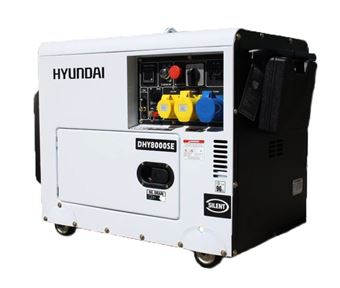Generators have long been a crucial part of the UK power infrastructure, providing backup electricity during outages and supporting various industries. However, like any equipment, generators have a finite lifespan. Periodically replacing old generators is a strategic decision that impacts reliability, efficiency, safety, and sustainability. In an age where uninterrupted power supply is critical for businesses, healthcare, and various other industries, buying new generators in the UK is an investment in the future.
Modern generators incorporate the latest innovations in design, fuel efficiency, and control systems. In this blog, we'll explore the many reasons why it's essential to periodically replace old generators.
Reliability
As generators age, their reliability decreases. Components wear out, and the risk of unexpected failures increases. Old generators may struggle to start, suffer from voltage fluctuations, and produce inconsistent power output. This unreliability can be catastrophic in critical situations, such as during power outages in healthcare facilities or data centres.
Maintenance
Old generators typically require more frequent and costly maintenance. The older the generator, the harder it becomes to find replacement parts, leading to longer downtime during repairs. Modern generators come equipped with advanced remote monitoring and control systems, which can help identify and address issues before they become critical. This proactive approach to maintenance reduces downtime and improves overall system reliability.
Environment
Older generators are often less fuel-efficient and emit higher levels of pollutants. Replacing them with newer models can reduce emissions, contributing to a cleaner environment and helping to combat climate change. Modern generators adhere to stricter environmental regulations and are designed with sustainability in mind. With rising fuel prices and a growing emphasis on sustainability, upgrading to a more fuel-efficient generator can lead to substantial long-term benefits.
Safety
Old generators may pose safety risks due to outdated technology and worn-out components. Safety standards and regulations change over time, and newer generators are designed to meet the latest safety requirements. Replacing old generators ensures that safety is not compromised, especially in environments where human lives and critical operations are at stake.
By embracing the advantages of modern generator technology, businesses and homes can reduce operating costs, minimise downtime, and contribute to a cleaner environment. With special government policies and incentives, it's a no-brainer to buy a new generator in the UK and maintain competitiveness. In the long run, the benefits of periodically replacing old generators far outweigh the outlay costs, ensuring a reliable and efficient power supply for years to come.

No comments:
Post a Comment